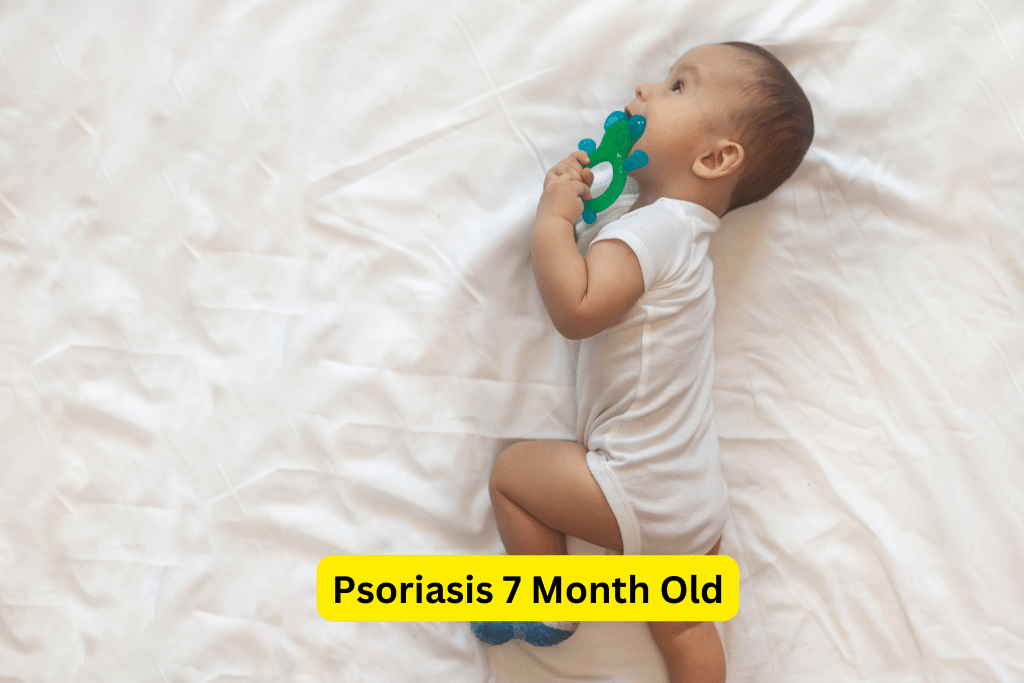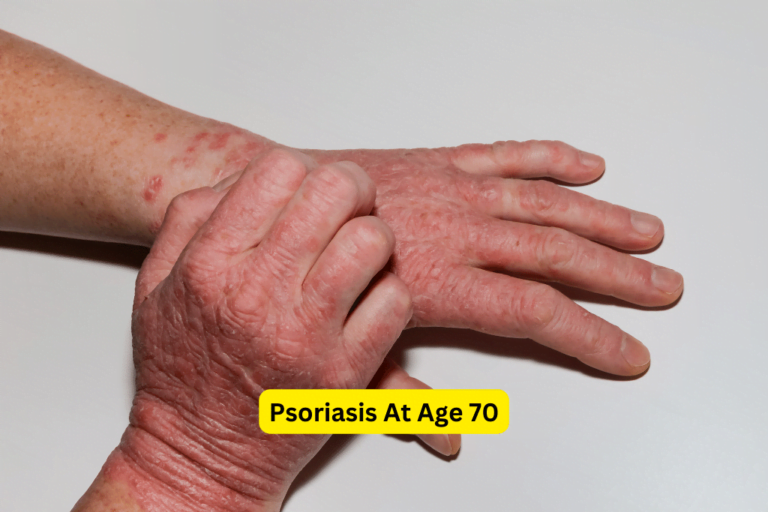Psoriasis in 7-Month-Olds: Causes, Symptoms, and Treatment
Psoriasis 7 Month Old
Psoriasis is a chronic autoimmune condition that primarily affects the skin, causing red, inflamed patches of skin covered with silver scales. While psoriasis is commonly associated with adults, it can also occur in infants, including those as young as 7 months old. Detecting and treating psoriasis in infants early is essential for managing the condition and alleviating symptoms. In this article, we will explore the causes, symptoms, and treatment options for psoriasis in 7-month-old babies, as well as provide guidance on effective management strategies for parents.
I. Understanding Psoriasis in Infants
A. Causes of Psoriasis in 7-Month-Old Babies
There are several factors that may contribute to the development of psoriasis in infants. Genetic factors play a significant role, as children with family members who have psoriasis are more likely to develop the condition themselves. Additionally, environmental triggers, such as infections or certain medications, can also play a role in triggering psoriasis in infants.
B. Risk Factors for Psoriasis in Infants
In addition to genetic factors and environmental triggers, there are certain risk factors that may increase the likelihood of psoriasis in infants. Having a family history of psoriasis, especially in a first-degree relative such as a parent or sibling, significantly increases the risk. Certain medical conditions, such as obesity or autoimmune disorders, may also contribute to the development of psoriasis in infants.
C. Comparison with Psoriasis in Adults
Psoriasis in infants may present differently compared to psoriasis in adults. Infants often develop red, inflamed patches of skin, whereas adults commonly experience thickened, scaly plaques. The challenges in diagnosing psoriasis in infants lie in the similarities between psoriasis and other skin conditions, as well as the limited ability of infants to communicate discomfort.
II. Recognizing Symptoms of Psoriasis in 7-Month-Old Babies
A. Physical Symptoms
The physical symptoms of psoriasis in infants include red, inflamed patches of skin that may be covered with silver or white scales. These patches can occur anywhere on the body, but are commonly found on the scalp, causing a condition known as cradle cap. Dry and flaky skin is also a common symptom.
B. Psychological Symptoms
Psoriasis in infants can lead to significant discomfort and irritability. The constant itching and inflammation can cause distress and disrupt normal sleep patterns. It is important for parents to pay attention to any behavioral changes and consult a pediatrician if they suspect psoriasis.
C. Importance of Consulting a Pediatrician
Consulting a pediatrician is crucial for early diagnosis and intervention. While psoriasis in infants is generally not a serious condition, it is important to rule out other skin conditions and provide appropriate treatment and care. Prompt diagnosis and treatment can help manage symptoms and prevent potential complications.
III. Treatment Options for Psoriasis in Infants
A. Topical Treatments
Topical treatments are commonly used to manage psoriasis in infants. These include moisturizers and emollients to keep the skin hydrated, steroid creams and ointments to reduce inflammation, and calcineurin inhibitors to suppress the immune response in the affected areas.
B. Phototherapy
Phototherapy, which involves exposing the affected skin to UV light, can be an effective treatment option for infants. UVB and PUVA treatments may be used under the guidance of a pediatric dermatologist. However, it is important to consider the potential risks and limitations of phototherapy in infants.
C. Systemic Medications
In severe cases, systemic medications such as oral or injectable medications may be prescribed to manage psoriasis in infants. These medications work throughout the body to suppress the immune response and reduce inflammation. However, the use of systemic medications in infants requires careful consideration and monitoring due to potential risks.
D. Home Remedies and Natural Treatments
In addition to medical treatments, there are several home remedies and natural treatments that may provide relief for infants with psoriasis. Oatmeal baths and gentle cleansers can soothe irritated skin, while coconut oil and natural moisturizers can help keep the skin hydrated. It is important to consult with a pediatrician before trying any home remedies.
IV. Management Strategies for Psoriasis in Infants
A. Skin Care Tips for Parents
Parents can play an essential role in managing psoriasis in infants by following proper skin care tips. Keeping the skin moisturized is crucial, and avoiding triggers and irritants can help prevent flare-ups. Dressing the baby in loose-fitting clothes made of soft fabrics can also minimize irritation.
B. Lifestyle Adjustments
Making lifestyle adjustments can also contribute to managing psoriasis in infants. Dietary modifications, such as avoiding potential trigger foods, may help reduce inflammation. Additionally, stress reduction techniques, such as gentle massages or creating a calming environment, can alleviate symptoms and improve the overall well-being of the infant.
C. Support and Coping Mechanisms for Parents
Parents of infants with psoriasis may experience emotional challenges. Joining support groups and connecting with other parents facing similar circumstances can provide valuable support and insights. Seeking professional help, such as therapy or counseling, can also help parents cope with the impact of the condition on their daily lives.
V. Prevention and Outlook for Psoriasis in Infants
A. Preventive Measures to Reduce Flare-ups
While psoriasis cannot be prevented, there are measures that can be taken to reduce flare-ups in infants. Avoiding triggers, such as certain fabrics or harsh soaps, can help minimize skin irritation. Establishing regular skincare routines, including moisturizing and gentle cleansing, can also help maintain skin health and prevent exacerbation of symptoms.
B. Monitoring and Evaluation
Regular monitoring and evaluation of psoriasis in infants are essential. Ongoing check-ups with a pediatrician are important to assess the progress of the condition and adjust treatment accordingly. Tracking symptoms and flare-ups can provide valuable information for healthcare professionals.
C. Prognosis and Long-term Outlook
The long-term outlook for infants with psoriasis varies, and the condition may go into remission as the child grows. With appropriate management and care, many infants with psoriasis are able to live a normal life. However, it is important to continue monitoring the condition and adapting treatment strategies as needed.
Conclusion
Psoriasis in 7-month-old infants can be challenging, but with early detection, proper treatment, and ongoing management, it can be effectively controlled. Timely consultation with a pediatrician and following management strategies are crucial in providing relief for infants with psoriasis. By prioritizing proper care and being proactive in seeking support, parents can help their infants thrive despite living with psoriasis.
"Have You Seen Mike Walden's new holistic acne System yet? It's called "Acne No More" I've read the whole thing (all 223 pages) and there's some great information in there about how to naturally and permanently eliminate your acne without drugs, creams or any kind of gimmicks. I highly recommend it - it's very honest and straightforward without all the hype and b.s. you see all over the net these days. Here's the website where you can get more information:
Click Here -->AcneNoMore









